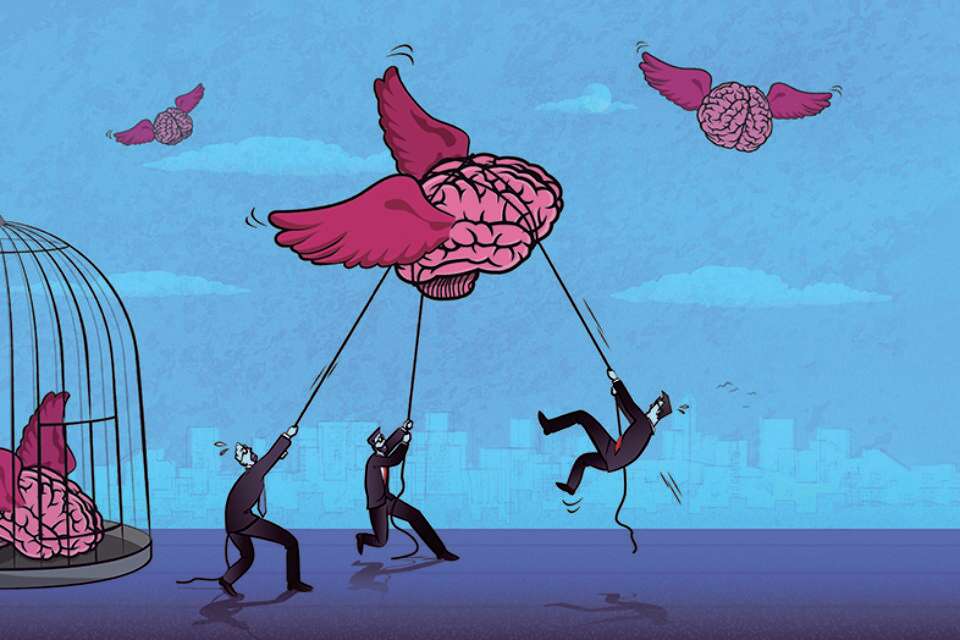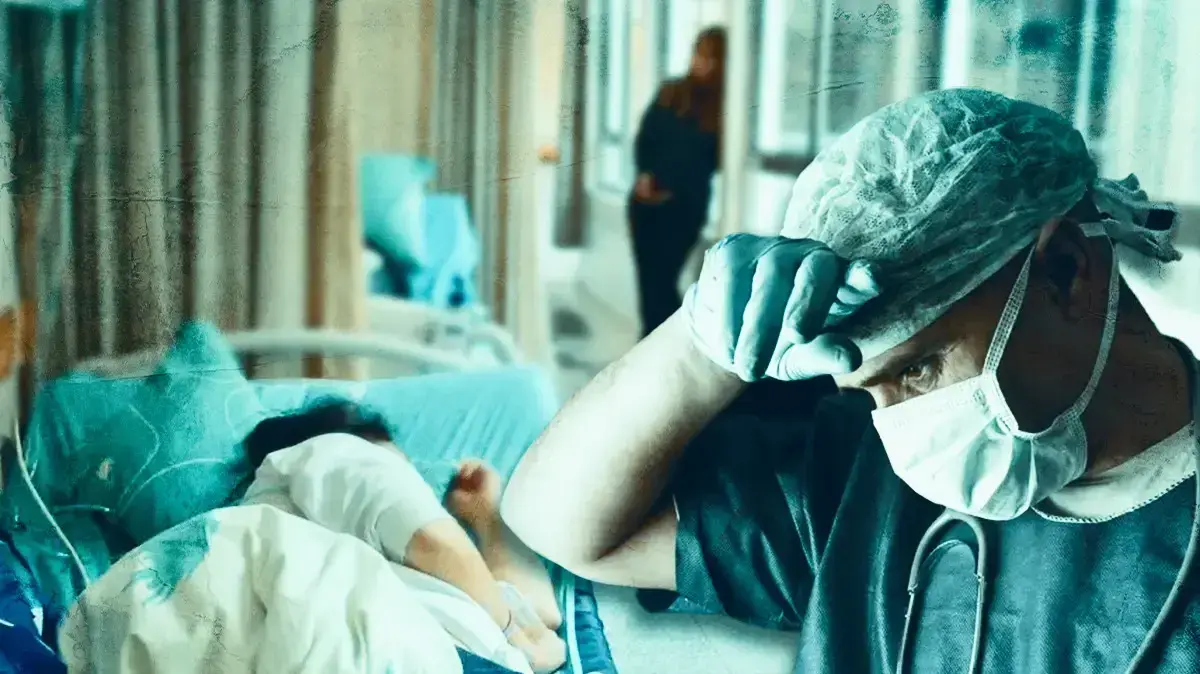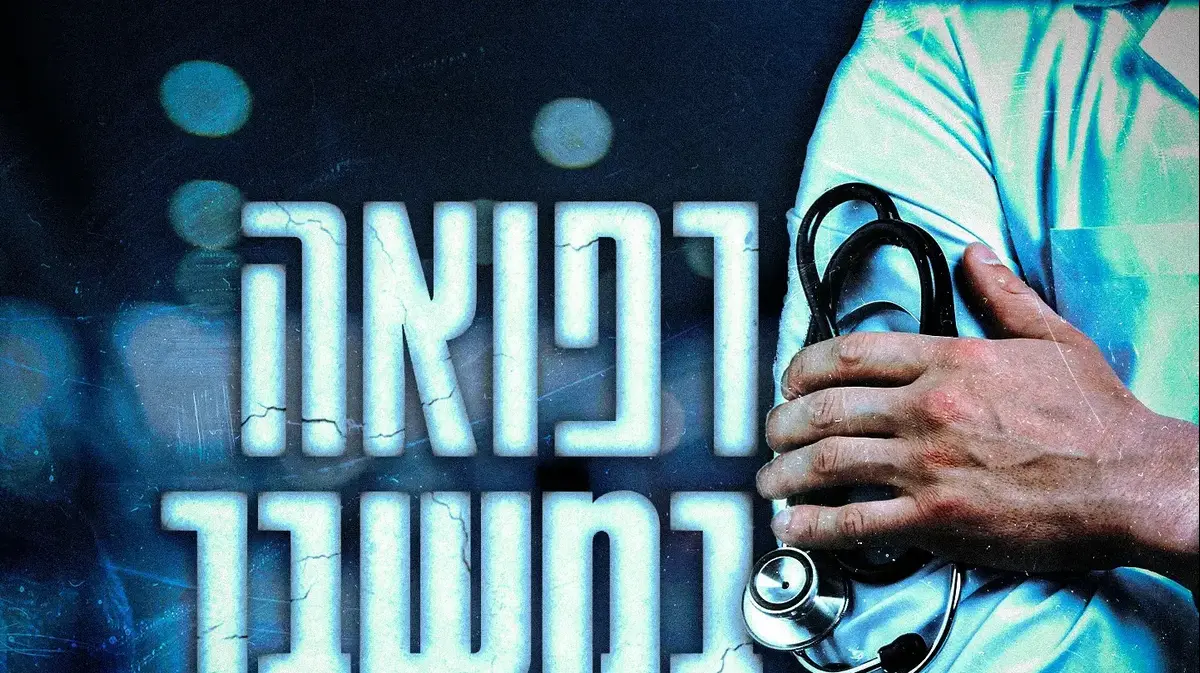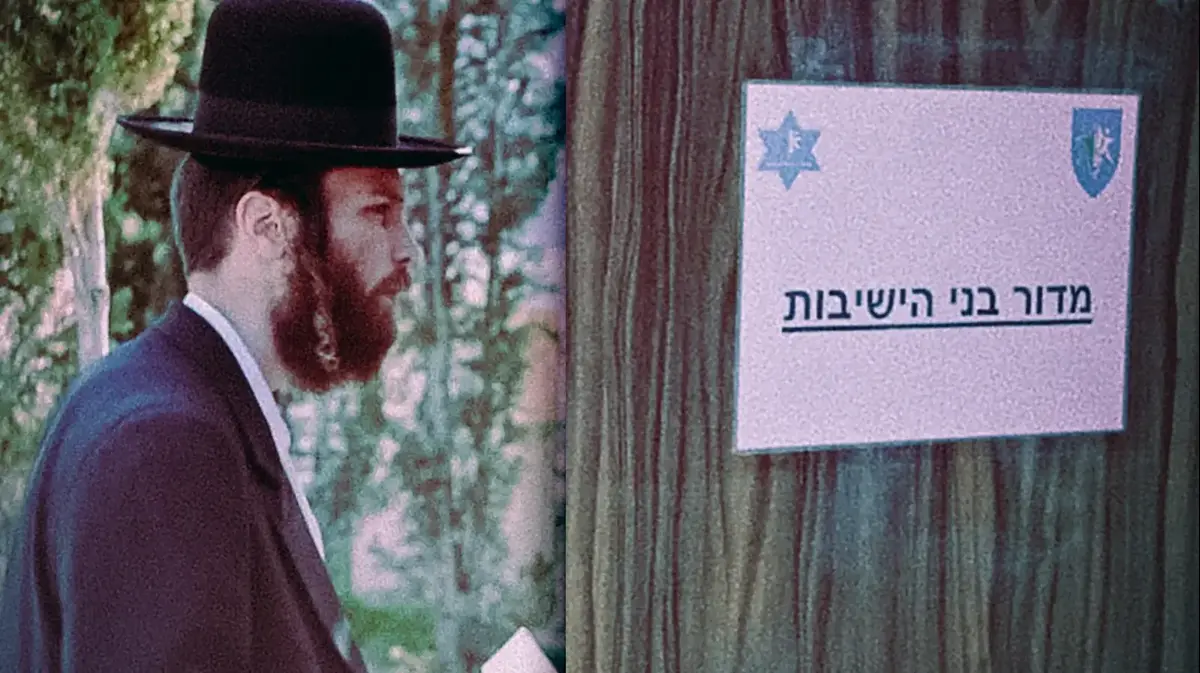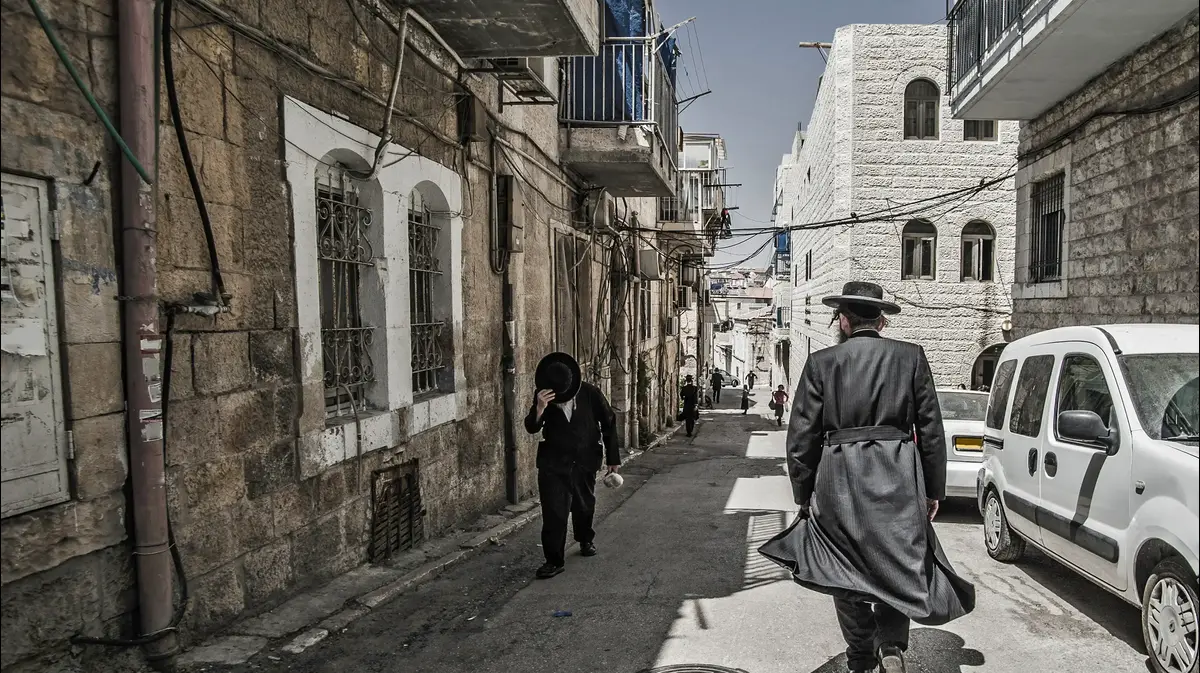First figure:
almost half of the new medical licenses issued by the State of Israel in 2021-2022 were given to Arab and Druze students - according to a report by the Ministry of Health published about three weeks ago.
Second figure:
almost 60% of the new doctors who passed the exams in 2021 studied medicine abroad.
Third figure:
More than half (53%) of the Israeli medical students studying abroad are considering with a high or very high probability not to return to Israel at the end of their studies, but to continue their career in Europe or the USA - according to a survey conducted in July of last year by "Medical Doctor", a company engaged in training Israelis for medical studies abroad.
Furthermore:
from the same report of the Ministry of Health it appears that the main study countries of the recipients of medical licenses in 2021 were Romania (229 licenses), Moldova (161), Ukraine (111), Hungary (74), Italy (52), Jordan ( 45) Germany (33), Russia (23), Egypt (17), Armenia (15), Syria (11), universities in the Palestinian Authority (PA) - 69 and Slovakia (46).
In total, with several other countries, this is 985 new licenses.
A note attached to the report states that the number of graduates who studied in Romania, Moldova and Ukraine has increased greatly in the last five years.
Demonstration of the interns, photo: Elyashiv Rakovsky/TPS
And what about ex-military students who want to study medicine in Israel?
They face an obstacle in the form of affirmative action programs, which are designed to promote members of minorities.
This created a situation where even with excellent matriculation certificates and high scores in the psychometric test, they are rejected by the universities because they did not meet the difficult entry requirements.
No one makes any concessions to them, even though they started the expensive and exhausting Kabbalah journey relatively late, while their colleagues who did not serve in the army start earlier and screw up relatively quickly in the system.
The universities claim that the promotion programs are intended for all disadvantaged populations, but in light of the data, it seems mainly that one disadvantaged sector is promoted over the others.
What are the grades in which the "weakened" students were required to meet as a threshold condition?
How much of a "discount" does each candidate receive from any given background that qualifies for affirmative action?
Will an Arab or a Bedouin get a "discount" in his scores like an Ethiopian, a new immigrant or a Haredi?
All our attempts to understand from the universities what are the criteria according to which those eligible received affirmative action - ran into a wall in the form of
Hundreds of candidates for each place
There are currently six faculties of medicine operating in Israel - at the universities of Tel Aviv, Jerusalem, Beer Sheva, Bar Ilan, Ariel and the Technion.
Hundreds of candidates compete for each place, facing tough admission conditions.
According to data from the Central Bureau of Statistics, the rate of rejections from medical studies in Israel jumped 2.5 times between 2005 and 2021.
In any case, the demand is much greater than the supply.
Even when the students are admitted to medical school, they discover that their path of torment has only just begun.
Hence, they will be required to invest a large amount of capital to finance their living and studies, which last at least six years (even the four-year track is accepted only after obtaining a degree in one of the professions that have the adequacy for medicine).
These difficult conditions cause many to give up their dreams or study in other countries, far from family and friends.
Some of them will not return to Israel after school.
They will marry and settle in a foreign land, and the country will lose the best of its sons, including officers and veterans of combat units serving in the reserves.
Faculty of Medicine at Tel Aviv University (archive), photo: Yehoshua Yosef
In the Arab sector, the picture is different, partly because of the multitude of programs for affirmative action: according to the data of the Central Bureau of Statistics, already in 2016 the medical assistant professions were very popular among the Arab students, who were 24% of the students.
Even in the faculties of medicine their representation was considerable - 16%.
What happened in 2016?
The Council for Higher Education presented a multi-year plan, one of the goals of which was the massive integration of Arab students in the higher education system.
The program places emphasis on exposure to the academy as early as high school, on academic counseling and guidance during the registration phase, on support in psychometric courses, on reinforcements in Hebrew and counseling during studies.
In addition to this, the Planning and Budgeting Committee also awarded research and honors scholarships to Arab students in advanced degrees, and presented a goal according to which at least 17% of students in Israel will be Arab by 2022 - a goal that was actually achieved.
According to the MLA data, in 2023 there will be 60,000 Arab students studying in Israel in all academic subjects.
Acceptance conditions are difficult.
The Technion, photo: Roni Shitzer
As mentioned, the increase in the number of students from the Arab society is not accidental, but the result of a comprehensive program operated by the Committee for Planning and Budgeting (VTA), starting from the high school level and ending with graduate studies. The program begins at the high school level with exposure to academia, and continues in pre-academic preparatory courses, through the bachelor , continue to support the advanced degrees - master's degree, PhD and post-doctorate - until the appointment of academic staff members in the institutions. During the high school education phase, the "Road Program" of the MLA operates in 72 Arab communities.
It provides exposure, information and assistance in choosing a field of study for the academy to students from 173 high schools in the Arab society, including support in relevant courses (such as psychometrics, preparation for the Yael tests in Hebrew and the Amir tests in English), tours of the academy and a higher education fair in collaboration with the institutions in the settlements .
Also, in the TA budget and in cooperation with the Ministry of Social Equality, the "Irtaka" scholarship (operated by the National Program for Social Impact - PARAH) is awarded.
In addition to this, a Ma'uf scholarship is awarded for the admission of outstanding academic faculty members from the Arab society: in the last decade alone, the Ma'uf scholarship has awarded approximately 55 Ma'uf scholarships totaling approximately NIS 37 million to outstanding academic faculty members from the Arab society. The institutions undertake to accept the winners of the scholarships as full-time faculty members Full at the end of the scholarship period.
In addition, there are various programs for the integration of the ultra-orthodox and Ethiopian population in the academy.
It should be noted that while the goal of integrating Arab society was achieved before its time, the goals set for the ultra-orthodox and Ethiopian sectors have progressed nicely but have not yet reached the goal they set for them.
At the same time, there are programs to promote disadvantaged populations.
One of them is "Gate to the Academy", intended for the Bedouin population only and offering an alternative to the customary psychometric test.
There is also a program called "Deserving of Promotion", intended for underprivileged populations who wish to integrate into academia, including the Arab, ultra-orthodox and Ethiopian sectors.
As part of the route, discounts and concessions are given to those who are eligible.
The exact conditions vary from university to university and department to department in each university.
The universities keep the data themselves close to their chest, but from many data we collected from the field it becomes clear that almost 15% of places are reserved for those who pass the "deserving of promotion" program and these receive a discount on the psychometric score.
When it comes to medical studies, the practical meaning is that even the brightest students, who received a 738 in psychometrics, will not be accepted for studies, while their counterparts from the various promotion programs may be accepted with lower personal data.
From an inspection we conducted it became clear that the number of ultra-orthodox and Ethiopian students who were accepted to medical studies in this way is almost zero.
The Israeli health system currently employs between 13 and 20 doctors of Ethiopian origin, some of them immigrants who studied in Ethiopia or Europe and did not graduate from medical studies in Israel.
In an interview she gave in 2019 to the "Doctors Only" website, Dr. Hadas Melda-Masri from Soroka Hospital said: "I know of 13 doctors of Ethiopian origin in Israel, not all of them graduated from medical studies in Israel. Among them is the deputy director of the pulmonary department at Wolfson who did not study In Israel, four family doctors, two in ENT with specialization, one in children, one in eyes, one general surgeon, one internist, cardiologist and two dentists.
Also, there are 17 medical students in various stages of their studies."
"We need to see," she noted, "how to allow more Ethiopians to enter medicine in Israel and the health professions. I know that for the Bedouin-Arab population there are many programs and also affirmative action. We have excellent guys, but they fail to reach the goal in the psychometric tests. We all know that there is a problem with this exam in certain populations."
As for the psychometric test - it is divided into three parts;
Mathematics, Hebrew and English.
The Hebrew part has more questions relative to the time devoted to it, they require fast reading ability, inference and a very high linguistic level.
The linguistic part of the test in Arabic is considered easier, and experts we spoke with estimated that it gives the Arab students a score 100 points higher on average.
And what about the ultra-Orthodox?
The website of the KMH Foundation (Orthodox Professional Promotion) states that although the ultra-Orthodox sector makes up almost 12% of the population in Israel, its representation in medical faculties is only 1%, after the assistance, encouragement and support of the KMH Foundation.
According to the MLA data, in 2020 the number of ultra-orthodox female medical students was 57 - about 1% of the total of 5,200 male and female medical students in Israel.
"Al-Qasmi" College in Baka.
Concessions for Arab-Israeli students, photo: Ibrahim Abbasi
Manny Miller, 35 years old, is a rare example of a former ultra-Orthodox man who went to medical school.
Miller, one of seven children, currently lives in the Pardes Katz neighborhood in Bnei Brak.
He is a former ultra-Orthodox, a graduate of the Mir yeshiva, and even when he was an avrach in Kollel he began studying at the Open University for a bachelor's degree.
Manny proves that even students from underprivileged populations can pass the arduous admission conditions, if they qualify.
"I graduated with a bachelor's degree in psychology with honors. After that I did medical school in Bar-Ilan, and after two attempts I was accepted to Tel Aviv. I am doing the four-year course, which does not have a psychometric test, but a test of knowledge about biology and an analytical test that is equivalent to the psychometric test. I received a score on this test Very high - 243 out of 250. The second stage for those who pass is personality tests as in the normal track."
How did you do it?
"It's pretty crazy because I don't have a high school diploma, as mentioned, and I don't know English or math, but I have determination. In my opinion, the state should tighten the admission conditions for students from abroad to Israel and open more places here for medical studies."
Bill and coalition agreement
The political system also did not remain indifferent to the absurd situation that was created: last year, MK Shlomo Karai (Likud) initiated a bill seeking to abolish the principle of affirmative action for Arabs in admissions to educational institutions and the civil service, and to prefer over them all those who served in the army or national service. The bill It did not pass, but has now been included in a softened version of the Likud and Otzma Yehudit coalition agreements, which state: "The government will promote affirmative action for military veterans in the faculties of medicine, law, computer science, accounting and engineering subjects in universities and institutions of higher education."
Ashraf Jabour, the CEO of the National Program for Making Higher Education Accessible to the Arab Society, also says that he made sure to give preference to military graduates. "I included dozens of Bedouin veterans in the program and made sure to give preference specifically to military service graduates from the Bedouin sector from the south, because of the huge disparities.
In my opinion, the affirmative action is justified to give almost equal opening conditions to all citizens of the country.
It is important to note that we do not interfere with the admission conditions, and each institution determines them on its own.
Ashraf Javor, photo: Michel dot com
"In my opinion, there is room for canceling the psychometric exam for everyone and providing for an alternative in every class, then those who pass the first year can continue their academic studies. This is the affirmative preference I believe in, but at the same time the standards for medical studies at universities in Israel should be increased and every Israeli should be given a chance."
Is it true that the psychometric test in Arabic has a built-in advantage of 100 points?
"100 points is the difference in the psychometric score between those who were tested in Arabic and those who were tested in Hebrew. There is no preference here, it's simply a fact."
We don't want more faculties
Despite the lack of medical staff in Israel's hospitals, no new faculties for medical studies are opened in Israel.
As a result, the admission requirements for medical studies are at the highest level, which is an obstacle for the thousands who drop out in the journey towards the white coat.
In recent years, an attempt has been made to increase the number of medical students, but the universities themselves oppose this.
The tough admission conditions motivate many young people to fly to study at faculties abroad, where they go through a reasonable admission process. But even though almost 60% of the graduates each year studied medicine abroad, those who return to Israel say that they feel like "stepsons" of the system here, which makes it difficult for them When they ask to specialize in Israel.
Shai Haberman, CEO of "Mikeite School", a company that prepares students for medical school entrance exams in Italy, meets these young people almost every day, and her conclusions are unequivocal: "The greatest frustration of medical school applicants stems from the screening and admission process itself.
They find themselves as 'psychometric and graduation students' instead of medicine, with all that implies - mainly an investment of money and a lot of precious time.
On top of that, a score of 740 or 760 in psychometrics and a perfect matriculation average also do not guarantee admission, and it's possible that after years of improving matriculation and exams it still won't be possible."
How does the system work in Italy?
"It is completely different. A full matriculation certificate is required, and the competition for places is open to everyone and is done with the help of an objective test - when you know exactly how many points each correct answer is worth, how many points are deducted for an incorrect answer and what the final grade is. It is so simple that you can even calculate yourself the grade and understand if you were accepted."
"They were thrown away by the state"
Orly Blank, 50 years old from Tel Aviv, is an entrepreneur and stand-up comedian, a proud mother of a son who served in a significant role in the army.
After trying to get accepted to medical studies in Israel, he gave up and went to study abroad. "My son is studying today, along with hundreds of other Israeli students, in Europe.
They are far from the family and study hard, even on Saturdays and holidays.
These are children who are the salt of the land, and they were thrown out of the borders of the country after their military service by the state.
The Jewish state allowed him to serve in his best years as an officer, but it seems that no one is ending the injustice."
What is wrong in your eyes?
"The state tells them: there are minorities here, it's harder for them. So first they will accept, and for the few remaining places you will fight: more psychometrics, more improvement of matriculation tests - until you give up and go to study abroad.
There is no place for you here.
What to do?
We are a reformed country.
There is affirmative action here.
Enlightened country, and other slogans that make me sick.
But in the end, this is a Jewish state, and at the very least, affirmative preference must be given to the best of our sons, the salt of the land, who have served it for years."
What would you expect to happen?
"I would like there to be a preference for children who have made a significant contribution to the army. Only after that, affirmative preference for underprivileged populations, and then everything else. These children, who gave a few more years of their lives, went to the army and start at an older age to try to get accepted into medicine, they do not succeed because there is not enough room in the faculties, because There are not enough allocations and standards. They no longer have time to improve grades and take psychometric tests over and over again, so they leave the country. Many of them already stay abroad after school."
On the other hand, Shirley Aharon, the mother of a son who is trying to be admitted to medical studies in Israel and at the same time is also exploring options for medical studies abroad, says that if she wanted to improve anything in the current situation, it would be to add standards of affirmative action for the indigent who deserve promotion, and at the same time additional standards for studies medicine.
Explain your point of view.
"In my view, affirmative action is not given on racial grounds. Members of minorities receive it because we as a country have weakened and neglected more and more populations within us for years, creating social gaps. If only we had strengthened and strengthened them, we would be better off today. It is easier to prevent problems than to solve them Just as it is important for us to fight for core studies for ultra-Orthodox children, in order to enable them in the future to acquire a higher education and support themselves with dignity, even a boy or girl who reached 620 or 650 in psychometrics, and a sufficiently high matriculation average, and did so without support and without private lessons As far as I'm concerned, they deserve admiration and promotion. These people didn't receive the same opening conditions, so the state understands that some of them deserve an opportunity. It's not by grace, it's by merit."
Doesn't it upset you that a guy with lower grades will take your son's place in the Faculty of Medicine?
"It's a question that seeks to find the foreigner and the underprivileged, turn him into an address and blame him. It's a question that creates and reinforces a feeling of danger and 'eat me, drink me' in people like my son, who tear themselves apart in the journey to the doctor's degree - instead of looking for real solutions."
We also talked with mothers who only asked for equal conditions for their sons who served in the army.
"My son, like many good ones, turns over every stone in an attempt to be accepted. It takes a toll - money, health and time. Nevertheless, my son will only have a better country if it is a country for all its citizens; a country that is not afraid to strengthen the weak and does not deepen gaps and earns a living of them. The easiest is to weaken the weak and incite them against the privileged. It is more difficult to strengthen, care for and nurture. Therefore, my son would also prefer that the state assign more standards for affirmative action.
"Those who go to study medicine choose a profession that is often ungrateful. In my eyes, the first condition for becoming a doctor is the ability to see the other. Only a country that understands the need to provide high-level education to all its citizens is a better country, a country that ultimately also becomes financially stronger. A claim that the preference is made on racial grounds is a racist claim.
"The trending attempt to present the promotion of outstanding people with disadvantaged backgrounds as racial discrimination reminds me of countries and dark days, except that we were the members of the minorities then. The State of Israel is a state of all its citizens. The more they increase affirmative action, after years of racism and neglect of an entire sector; the more they increase the Standards for everyone who came to study medicine despite the difficult conditions - so the State of Israel will be a place worth returning to after studying in Italy, Lithuania, the USA or Hungary."
Five more Arab faculties
Affirmative action is indeed a welcome move, certainly for those who did not receive an equal opportunity.
But it turns out that the members of the Arab sector actually have more opportunities - for example, in choosing a faculty of medicine.
Because while in the State of Israel, as mentioned, only six faculties operate, in the Palestinian Authority and in Gaza there are five additional faculties of medicine, some of which are even recognized by the Israeli Ministry of Health.
"Thousands of Arab-Israeli students choose to study at the Palestinian Authority, at the American University of Jenin, at 'A-Najah' in Nablus, at 'Bir Zeit' in Ramallah, at 'Al-Quds' in the town of Abu Dis, at Bethlehem University and two Universities operating in Hebron - the 'Islamic' and the 'Polytechnic,'" explains Avi Shalu, the first Jewish student who studied at the Islamic college 'Al-Qasmi' in Baka al-Gharbia.
"The number of young Arab-Israelis studying medicine at Palestinian universities and in Jordan is estimated this year at between 9,000 and 15,000, which is about a quarter of all Arab Israeli citizens studying at the academy. At Jenin University alone, whose graduates are recognized by the Israeli Ministry of Health, more than 6,000 Arabs study Israelis - more than the number of Arab students at Haifa University, which is the academic institution with the highest number of Arab students in the country."
And are their degrees recognized in Israel?
"Yes. The State of Israel grants recognition to most of the courses studied at Palestinian universities, especially in the field of medicine and health. Also, the Palestinian universities grant additional concessions to Arab-Israeli students, such as exemption from the psychometric test, concentrated studies on weekends, studies in Arabic or English, and more. Reason Adding to their popularity is the desire of Muslim families to send their daughters to study in a more conservative environment and geographically closer to where they live."
That sounds like a great solution, doesn't it?
"No, because it has long-term negative effects on the economy and on the national security of the State of Israel. Young Arab-Israelis who seek to acquire a higher education are often drawn into an anti-Israeli atmosphere there. They experience radicalization in their views and graduate when they are recruited into the Palestinian narrative, which burdens their chances of integrating into Israeli society. And since they study in Arabic, they deepen the linguistic barrier and lose an opportunity to improve their Hebrew language skills."
"Israeli Arabs are currently enjoying all the worlds, all the possibilities and all the faculties and possibilities open to them in the territories of the Palestinian Authority and in the neighboring Arab countries," says Col. (Res.) Tal Brown, strategic consultant and entrepreneur, father of a medical student. Brown researched the issue for two years and wrote articles Many that reflect his position after examining many data and investigating the area.
"There are currently five faculties of medicine in the territories of Judea and Samaria, but the faculties of medicine in the Middle East are also open to them. There are 6 faculties in Jordan, 7 in Lebanon, 31 in Egypt, and 27 in Saudi Arabia. And so, while young Arabs who hold a blue identity card have almost no movement restrictions in Arab countries in the East High school, certainly not in the territories of the Palestinian Authority in Judea and Samaria, young Israelis are limited to studying only in Israel or abroad."
light at the end of the tunnel?
Avi Shalu also wishes to promote the effort led by Dr. Baha Zoevi, Rector of Baka College, to recognize Baka as the first Israeli academic college in an Arab city, alongside the other Israeli colleges and universities, all operating in Jewish cities and communities in Israel. According to him, recognition of Baka College, which has a Faculty of Health Sciences And that in the future it will also include a medical school, it will return the young Arab-Israelis to the Israeli academy and allow them to exercise their skills and successfully integrate into Israeli society and the economy. - To study the health and high-tech professions in Hebrew and in the State of Israel. This is an important national issue for promoting equal opportunities for everyone in the Israeli academy - both Arab and Jewish students," Shalu concludes.
The auditor already warned in 2018
Already in 2018, the State Comptroller published a serious report in which he warned about what was happening in the field. The report, which dealt with the regulation of the clinical training of doctors both in the health system and in academia, revealed a series of serious deficiencies and stated, among other things, that the Ministry of Health did not establish guidelines and instructions for the control of The manner in which the preparation courses intended to prepare students who studied abroad for the licensing exam are operated, and therefore cannot guarantee their academic level. The auditor also criticized the fact that a generous bonus is awarded to those who finish the courses - but the Ministry of Health and the examination board never examined how many examinees successfully passed the licensing exam Only thanks to him.
The auditor's examination revealed that from the beginning of 2015 to March 2017, of 28 graduates who studied in Armenia and passed the licensing exam for the doctor of medicine degree, more than half of them, 16, passed only because of the bonus they received - that is, 57% of the examinees.
Students who studied in Israel have no bonus at all.
The auditor stated that for 25 years no one checked how many doctors were accepted only thanks to the bonus given based on an unsupervised course.
The report stated that in view of the large number of medical license recipients in Israel among graduates of institutions abroad, the Ministry of Health, through the Licensing Division, should rob its control systems as soon as possible, in order to ensure that the preparatory courses for licensing overseas graduates are reliable and effective. He also demanded that the Ministry of Health examine the mechanism for giving the bonuses, except that as of today, as it is explicitly written on the website of the Ministry of Immigration and Absorption, the students who did not study in Israel still receive a 10% increase in the grade of the government test.
"The findings of the report point to the lack of a guiding hand when it comes to the training of doctors, and especially the lack of activity and lack of hands of the Medical Council and the Ministry of Health as factors of regulation and enforcement," the report states. "Given the lack of leadership and laxity reflected in the report, they Consider harnessing the Minister of Health and the Minister of Education to initiate a national program that will allow for a real expansion of the infrastructure for training doctors in Israel."
The report also states that the licensing department in the ministry gives the licenses to practice medicine without checking whether the applicant who did not study in Israel actually produced a certificate that would prove that he has a basic knowledge of Hebrew. As a result, there are doctors who do not have a proper command of the Hebrew language.
In the following, the auditor criticizes the high rate of Israeli doctors who studied abroad and received a license to practice medicine in Israel, a figure that indicates that the State of Israel relies to a large extent on graduates of medical studies, even though it has no influence whatsoever on the plans for their training. In doing so, the State gives up its ability to train The doctors' reserve that she needs, and does not allow them to study in Israel in an educational framework that has determined its format, its content and its academic staff. And when you look at the latest manpower report of the Ministry of Health, with which we opened, you notice that the number of licenses for Israelis who graduated from medical studies abroad is on the rise, despite the auditor's recommendation.
Prepared at the expense of the state
Another program which is an affirmative preference for young Arabs, this time from East Jerusalem, allows them to study, free of charge, at the state's expense, in a pre-academic preparatory school.
After that they hold a certificate equivalent to matriculation.
From there they can continue to try and be accepted in the various academic tracks in Israel, including medicine.
The attempt to be admitted to the academy will be through the "worthy of promotion" route, which helps disadvantaged populations.
The program to expand access to higher education for the Arabs of East Jerusalem, under the responsibility of the MLA, seeks to double the number of students studying in the first year for a bachelor's degree at institutions budgeted by the MLA through the expansion of the ROAD program, which is used to expose the Israeli higher education system to the residents of East Jerusalem.
Daganit Levy, a senior researcher at the Jerusalem Institute for Policy Studies, explains: "Until 2015, the Palestinian curriculum was mainly taught in East Jerusalem, and its graduates were tested in the Taujihi exams. They could not be accepted into the Israeli higher education system based on these exams, and the majority went to study in the Palestinian Authority or Abroad. The opening to the integration of East Jerusalem Arabs into the Israeli higher education system is found in two government decisions: 1775 (from June 2014) and 3790 (from May 2018). For the first time, young people who took the Tawjihi exams could study in Israeli academic institutions. Most of them are required to study in preparatory school - An academic school designated for them, the main focus of which is Hebrew study, publicly funded by the State of Israel. Resolution 3790 also resulted in the allocation of a substantial budget to promote the Israeli curriculum in East Jerusalem - a step that resulted in a doubling of the proportion of students who study according to the Israeli curriculum and take the matriculation exams from a few percentages to approximately 15% of the education system .
"צעד זה הביא גם להרחבת הנגישות לאקדמיה הישראלית. הרצון להגדיל את השילוב באקדמיה הישראלית נבע מהרצון לשלבם בשוק התעסוקה הישראלי, ובכך להגביר את שילובם בחברה הישראלית. צעירים ממזרח ירושלים הלומדים במוסד אקדמי ישראלי, דינם כמו כל סטודנט ישראלי אחר - כל מסלולי הלימוד פתוחים בפניהם, הם צריכים לעמוד באותם תנאי קבלה וזכאים לתואר בסיום לימודיהם. בנוגע לקבלה ללימודי רפואה: אנחנו עדים לקושי של ערבים בכלל, וערביי מזרח ירושלים בפרט, להתקבל ללימודי רפואה בארץ. אחד החסמים המרכזיים נובע מהפער בציון הממוצע בבחינה הפסיכומטרית: הציון הממוצע של כלל הנבחנים בעברית בישראל הוא 579, לעומת 495 בקרב כלל הנבחנים בערבית, ו־426 בקרב ערביי מזרח ירושלים".
"מסלול הקבלה בישראל פשוט לא רלוונטי למקצוע" | דניאל חגי, בן 24, לומד רפואה באיטליה
דניאל חגי, בן 24, גר בתל מונד. אביו איש עסקים, אמו אמנית ויש לו שתי אחיות. הוא משוחח איתנו ממקום לימודיו באיטליה.
דניאל חגי,
איך הגעת דווקא לאיטליה?
"הייתי לוחם ויצאתי לקורס חובשים. כשטיפלתי בפצועים, זה ביסס אצלי את הרצון ללכת ללמוד רפואה. אחרי הסדיר המשכתי לשרת כשנתיים וחצי והשתתפתי בהקמת תחום הרפואה הטקטית. בזמן הזה, שבו אני תרמתי למדינה, אדם אחר - שלא עשה שירות צבאי (כל אחד מסיבותיו) - היה יכול להתקדם הרבה יותר. אבל חשוב להגיד שאני לא מצטער על זה לרגע, זו היתה החלטה שלי ובסוף מישהו צריך לשמור על המדינה.
"התחלתי לנסות להתקבל לרפואה שנה לאחר שהשתחררתי מהצבא, עשיתי פסיכומטרי ואז הבנתי שמסלול הקבלה לרפואה בישראל פשוט לא רלוונטי למקצוע עצמו. מה הקשר בין 5 יחידות תנ"ך, היסטוריה ועברית למקצוע מדעי? הציון הכי גבוה שקיבלתי בפסיכומטרי היה 700. נרשמתי למכינה ברמת גן והתחלתי ללמוד למבחן הקבלה האיטלקי באנגלית".
ואיך אתה מרגיש בנוגע להחלטה הזאת היום?
"ההחלטה ללמוד באיטליה התקבלה ברגע שהבנתי שזו לא ברירת מחדל, אלא אפשרות טובה בהרבה מהלימודים בארץ. הסטודנטים הזרים, ובהם הישראלים, מקבלים כאן תנאים מצוינים. שכר הלימוד כאן מסובסד ברובו על ידי המדינה, ויש גם הקלות נוספות - העיקר שתבוא ללמוד פה. שלא לדבר על התרבות ועל הכבוד לאנשי הרפואה, באיטליה יש הרבה פחות סיכוי שתקבל כיסא בראש או פטיש למצח".
תחזור לארץ?
"לא יודע. אני אוהב את המדינה מאוד, תרמתי לה המון וראיתי במו עיניי חיילים בני 19 מתים בשבילה, אבל הצורה שבה הכל עובד עקום מפריעה לי מאוד. לא קשה למצוא פה בנות זוג, והרבה מהחברים שלי מוצאים פה חברות. זה יקל עליהם להשתקע פה או במדינה אחרת ולא לחזור".
"בניתוח מציל חיים - לא נרצה רופא שקיבל הנחות" | יונתן וייסמן, בן 27, לומד רפואה בליטא
יונתן וייסמן, בן 27 ממושב גיאה שליד אשקלון, סבור שההעדפה המתקנת היא לעיתים גזענות הפוכה - המופנית דווקא כלפיו.
יונתן וייסמן, צילום: באדיבות המצולם
"אני מאמין בהזדמנות שווה לכולם ואני לא מצפה לפחות מבני מיעוטים. הם יכולים לעמוד בדרישות. אולי במבחן הפסיכומטרי צריך להיות שינוי מבני בפרק העברית, שיסיר את הקושי הנוסף שאיתו סטודנטים ערבים נדרשים להתמודד. תחרות שווה היא אינטרס של כולם. כשאחד ההורים שלנו יצטרך לעבור ניתוח מציל חיים עם סיכון גבוה - נרצה, ובצדק, רופא שהגיע לתפקידו אחרי תחרות קשה מול מתמודדים טובים אחרים, לא רופא שקיבל הנחות. בסופו של דבר, התחרות מתבטאת בכוח אנושי איכותי וטוב יותר".
"כולנו נעבוד באותה מערכת, למה שתנאי הקבלה יהיו שונים?" | קארין שדבסקי, בת 24, לומדת רפואה בליטא
קארין שדבסקי, בת 24 מראשון לציון, לומדת רפואה בליטא. היא גדלה במשפחה שבה כולם רופאים וידעה שזה מה שתעשה אחרי שירותה הצבאי כסמב״צית חי״ר בגבול רצועת עזה. היא משוחחת איתנו, מרחק אלפי קילומטרים, מהאוניברסיטה הליטאית שבה היא לומדת, ולא חושבת שיש מקום לתוכניות מיוחדות להנגשת לימודי הרפואה.
קארין שדבסקי, צילום: באדיבות המצולמת
"אני מאמינה בשוויון, וכשמדברים על לימודי רפואה, בעיניי אין מקום לתעדוף. צריך לבחור את הטובים ביותר, עם נקודת פתיחה זהה לכולם וסיכויים שווים לכולם. מי שטוב יתקבל, ומי שפחות טוב שלא יתקבל. בסופו של דבר, כולנו הולכים לעבוד בשירותי הבריאות בארץ. כולנו דוברי אותה שפה, כולנו גדלנו באותה מדינה וכולנו הולכים לעבוד באותה מערכת בריאות עם אותם תנאים, אז למה שתנאי הקבלה יהיו שונים? לאחרונה התפרסמה כתבה על הפרופסור לרפואה הצעיר ביותר בישראל, בן 35, המגיע מהמגזר הערבי. אני אסיים את הלימודים שלי רק בגיל 27, ואז אחרי עוד שנה של סטאז' ועוד בין ארבע לשש שנים של התמחות, אם בכלל אקבל התמחות, כי יש בארץ בעיית תקנים - בת כמה אהיה? אם הייתי מוותרת על שנתיים של צבא ועל עוד שנה של ניסיונות להתקבל, גם אני יכולתי להיות פרופסורית בגיל 35".
מתי התחלת לנסות להתקבל ללימודי רפואה?
"כבר בתיכון. הייתי במגמת רפואה (מערכות בריאות 10 יחידות ו־5 יחידות ביולוגיה) וניגשתי למבחן הפסיכומטרי. עזבתי את התיכון שהייתי מיועדת אליו עם כל חבריי מהחטיבה כדי ללמוד במגמה הזאת, כי ידעתי שזה מה שארצה לעשות בעתיד. מייד אחרי שהשתחררתי מהצבא התחלתי את לימודי המכינה, כדי לנסות להתקבל ללימודים בחו"ל. רציתי לוודא שגם האפשרות הזו תעמוד לרשותי. במהלך הלימודים במכינה נתקלתי באנשים שבוגרים ממני בכמה שנים, שהגיעו למכינה אחרי שנים ארוכות של ניסיונות קבלה בארץ. חלקם עשו הרבה מבחנים פסיכומטריים, חלקם נמצאו עוד בשלב שיפור הבגרויות וחלקם עם נתונים גבוהים, אבל נפלו במיונים בראיון האישי. בשלב הזה הבנתי שהסיכוי שלי להתקבל בארץ הוא קלוש, ושהשנים שאותן אבזבז על ניסיונות לא שוות את זה. הכרתי המון סטודנטים שעברו ללמוד בחו"ל והחלטתי שזה מה שאעשה".
תחזרי לעבוד בארץ כרופאה?
"אני עוד לא יודעת. מצד אחד, אני רוצה לחיות במדינה שלי ולהיות קרובה למשפחה שלי. מצד שני, המדינה לא עוזרת לנו ולא מכירה בנו בזמן שאנחנו בחו"ל. לומדים איתנו סטודנטים אירופאים שהמדינות שהם מגיעים מהן משלמות להם חלק משכר הלימוד או אפילו את כל הסכום. אנחנו מוציאים הון תועפות על המחיה, על הטיסות ועל הלימודים עצמם, ואז בסוף אנחנו חוזרים לארץ ומסתכלים עלינו בתור רופאים סוג ב׳ שלמדו בחו"ל ולא הצליחו להתקבל בארץ".
משרד הבריאות: מטפלים באתגרים הייחודיים של הפריפריה
איילת גרינבאום אריזון, סמנכ"לית בכירה לתכנון אסטרטגי וכלכלי במשרד הבריאות: "בשלוש השנים האחרונות משרד הבריאות פועל כדי לתת מענה למחסור ברופאים וברופאות במערכת הבריאות. המשרד פועל בשני צירים. האחד, הציר הארצי, כשהמטרה היא גידול במספר הרופאים בכלל וגידול במספר הסטודנטים שלומדים רפואה. הציר השני הוא טיפול באתגרים הייחודיים של הפריפריה. לצורך כך, ישנן תוכניות ייעודיות להגדלת הרופאים והרופאות באזורים אלו. מלבד המישור הכמותי, המשרד פועל לוודא שכלל הרופאים שמגיעים לעבוד במדינת ישראל יהיו כאלה שלמדו בבתי ספר שרמתם טובה ומספקת. בשנת 2019 יצאה לפועל 'רפורמת יציב' שפסלה בתי ספר לרפואה בחו"ל שלא מלמדים ברמה טובה ומספקת, כך שמשנת 2025 סטודנטים שלומדים בבתי ספר אלה לא יוכלו לקבל רישיון לעסוק ברפואה במדינת ישראל"
"בנגב ובגליל קיים מחסור משמעותי ברופאים, והמשרד מקדם תוכניות ייעודיות למתן מענה למחסור. החל מהשנה הבאה צפויה להיפתח תוכנית אופקים, שתעניק הלוואות אטרקטיביות ללימודים עבור סטודנטים שיבחרו ללמוד בבתי ספר לרפואה בחו"ל המאושרים על ידי משרד הבריאות, כאשר ההלוואה תהפוך למענק למי שיחזור לעבוד בפריפריה או במקצועות שיש בהם מחסור. תוכנית נוספת שקודמה על ידי המשרד בשנת 2022 היא תוכנית אילנות - צוערים לרפואה בפריפריה, 60 סטודנטים לרפואה בנגב ובגליל, רובם בני המקום, שמתחייבים להישאר לעבוד בנגב ובגליל עד לסיום ההתמחות שלהם. באוקטובר 2022 נפתח המחזור הראשון, והשבוע נפתחה ההרשמה למחזור השני. מדובר בתוכנית יוקרתית שנוסף על מימון מלא של שכר לימוד ומלגת קיום בכל תקופת הלימודים, כוללת גם הכשרה חוץ־אקדמית שמתמקדת במנהיגות ובמצוינות רפואית".
"משרד הבריאות פועל לייצר קשר רציף עם הסטודנטים הישראלים הלומדים רפואה בחו"ל. ביולי האחרון הגיעו 20 נציגי סטודנטים שלומדים רפואה בחו"ל לפגישה עם גורמי מקצוע בכירים במשרד הבריאות, שכללה שולחנות עגולים למיפוי החסמים והקשיים שאיתם מתמודדים הסטודנטים. כמו כן, לראשונה השנה נפתח רישום לסטודנטים שלומדים רפואה בחו"ל, וזאת על מנת לאסוף מידע אחר מספר הסטודנטים שהם עתודת הרופאים בישראל.
"נתון זה חשוב להמשך התכנון הלאומי של רופאים במדינת ישראל. פעולות אלה יאפשרו לקדם תוכניות שיטיבו עם הסטודנטים הלומדים רפואה בחו"ל. מערכת הבריאות עיוורת להשתייכות למגזרים השונים, למגדר, לדת או לכל מאפיין אחר. במערכת הבריאות מועסקים עובדים ועובדות שנותנים טיפול רפואי מקיף ומקצועי לכל אדם שזקוק לכך. כולם מטפלים בכולם. זהו מקור גאווה עבורנו ועבור כלל אזרחי ישראל".
תגובת המל"ג: "בניגוד לטענות העולות מהכתבה, מל"ג אינה קובעת את תנאי הקבלה או מתן העדפה מתקנת למגזר כזה או אחר. תנאי הסף נקבעים על ידי המוסדות האקדמיים, במסגרת החופש האקדמי והמינהלי הניתן להם. העלייה בביקושים ובתנאי הקבלה אכן מקשים באופן גורף על כלל האוכלוסייה להתקבל ללימודי הרפואה.
"יתר על כן, המל"ג פועלת רבות להגדלת מספר הסטודנטים לרפואה, ולראיה כבר בשנת הלימודים הבאה יתווספו עוד כ־180 סטודנטים ישראלים. הגדלת מספר הסטודנטים הינה הדרך היעילה לאפשר לאוכלוסיות מגוונות להגיע ללימודי הרפואה. בהתייחס לעולה מן הכתבה, רישיונות הרפואה כוללים סטודנטים הלומדים בחו"ל, ועל כן אין קשר בין מספר הסטודנטים מהמגזר הערבי לרפואה בארץ למספר הרופאים ממגזר זה.
"מהנתונים שברשות המל"ג עולה כי מספר הסטודנטים מהמגזר הערבי לתואר ראשון ברפואה בתשפ"א עמד על 271 סטודנטים - כ־10% מכלל הסטודנטים לרפואה. שיעורם של הסטודנטים מהמגזר הערבי ירד בתשע"ד מ־17% ל־10% בתשפ"א. זאת כאשר שיעור הסטודנטים ממגזר זה בתואר הראשון עלה בשנים אלו מ־13% ל־18%. הסיבות המרכזיות לירידה נבעו מעלייה בתנאי הקבלה כתוצאה מהביקושים הרבים - דבר שככל הנראה הוביל רבים ליציאה ללימודי רפואה בחו"ל. כמו כן, לא ניתן להשוות בין החברה הערבית המהווה 22% מהזכאים לבגרות ומעוניינת מאוד בלימודים אקדמיים ובלימודי רפואה בפרט, לחרדים המהווים כ־3.5% מהזכאים לבגרות ולהם אתגרים ייחודיים בשל התנגדות קהילתית, וליוצאי אתיופיה המהווים כ־2.3% מהזכאים לבגרות.
"With this weighting, it seems that there are no significant differences in the ratio between the proportion of Arabs in medicine and those eligible for matriculation compared to ultra-Orthodox and Ethiopians, and it seems that the gap between the sectors is mainly due to their size in the population and disparities reflected in eligibility for matriculation.
"MALG works to promote holistic access programs for Arabs, ultra-Orthodox and ex-Ethiopians, and other programs for the social and geographic periphery.
The accessibility program for the Arab sector is adapted to this sector, but is not abnormal in scope compared to the other programs.
The issues of the shortage of doctors and the expansion of standards for medical studies are at the top of the agenda of MLA, as reflected by the recent steps taken in favor of this matter."
were we wrong
We will fix it!
If you found an error in the article, we would appreciate it if you shared it with us

